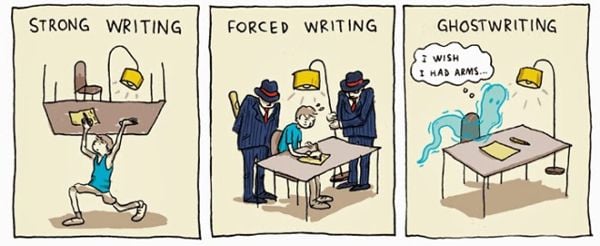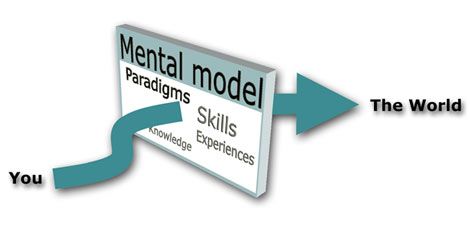Systems Thinking and Becoming a Better Person
 Erin Powers
·
3 minute read
Erin Powers
·
3 minute read
Image credit[1]
This blog is about how practicing four simple rules can make us better people.[1:1] Derek Cabrera has identified four simple rules or patterns that underlie both human cognition and the diverse theories, methods, and techniques of systems thinking.[1:2] These four rules are making distinctions and recognizing systems, relationships, and perspectives (DSRP).
In making distinctions, we recognize an “identity” (thing or idea) and an other (that which is not the identity). In recognizing systems, we identify parts and the wholes to which they belong. We also recognize relationships that are composed of an action and a reaction, and perspectives composed of a point (from which one “sees”) and a view (that which is seen). While the rules are enumerated separately, they operate simultaneously. For example, one is making distinctions when recognizing systems, relationships, and perspectives.[1:3]
In over a decade of practice teaching DSRP to a diverse array of audiences (e.g., businesses and organizations, multiple educational settings), Derek and Laura Cabrera have found that teaching DSRP enables students of all ages to master substantive content while also making them aware of their own learning processes, which transfers across substantive domains. Perhaps more interesting, as part of a USDA-funded project called ThinkWater, it was found that integrating DSRP into top-notch water curricula not only increased comprehension of a water lesson, it also increased caring about water issues.
How can this be? Well, the Cabreras have long held that DSRP has ethical implications, that learning the simple rules can make us better human beings—prosocial, emotionally intelligent individuals with an ethical compass. The key to this process is that practicing DSRP involves metacognition, or awareness of one’s thought processes. Heightened awareness of making distinctions and recognition of systems, relationships, and perspectives transforms our emotional life, as well. The brain is the seat of not only our cognitions, but also our feelings. A critical implication of this is that if we want to produce better (more compassionate, ethical, and prosocial) people, we should focus on the teaching the simple rules (DSRP). Of course, the deeper the application of DSRP, the better will be our results. It is the application of the rules, rather than knowledge of them, that is transformative.
Let’s take some examples. In making distinctions, we recognize an identity and an other. Awareness of the distinctions (which are essentially boundaries) we and others make can make us conscious of whom is included and excluded. A first step toward ending marginalization and invidious distinctions is such awareness. Similarly, a critical aspect of emotional intelligence is the ability to make distinctions between our thoughts and our feelings, and also among our feelings.
This leads naturally to a discussion of relationships. We are less likely to be blindly reactive in situations when we can discern the relationship(s) between our thoughts and feelings. Might our assumptions be driven by fear, for example? Breaking apart intense states into discrete feelings can help us examine both our assumptions and motivations before acting.
Moreover, as human beings we are embedded in complex webs of social interaction. Awareness of our interdependence promotes a sense of belonging and care for other people. We increasingly define our interests as lying with the group, rather than being restricted to ourselves. We are less likely to harm others when we recognize our interrelatedness and mutual need.
Lastly with respect to relationships, recognizing the multiple webs of causality behind different outcomes can reduce our human tendency to assign blame (or praise, for that matter).
Such considerations lead to the systems rule. If we could address one thing to transform our politics across all levels, it would arguably be the tendency to generalize the views and opinions of others, and to lump people together, irrespective of their unique situations, orientations, and positions.
Applying the systems rule leads us to recognize the parts of the whole, and can reduce the tendency to stereotype so endemic to our social and political discourse. We have already discussed how seeing our interrelatedness—akin to recognizing ourselves as parts of multiple wholes—is socially adaptive.
Finally, we have the perspectives rule, with perhaps the most obvious relevance for ethical behavior. Applying this rule entails awareness of the perspectives we and others take, as well as the ones we don’t take. To consider the perspective of another is required for true understanding and dialogue among diverse individuals. Awareness of the multiplicity of perspectives can help us detach from ones we assume, and help us search for the origins of our own perspectives, perhaps loosening their hold in the case of dogmatic beliefs.
In short, applying the four simples rules—distinctions, systems, relationships, and perspectives—can enable us to be better human beings. Given the increasing importance ascribed to emotional intelligence in business and educational realms, it is a fruitful time to teach and practice DSRP.
.png?width=150&height=150&name=CRL%20GOAT%20Logo%20(4).png)


